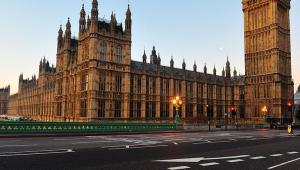Many have scoffed at the behaviour of companies that have been earning good money in this country but have, by various means, been avoiding paying UK tax. Either they use loans sourced at high rates of interest from subsidiaries in countries that have low-tax regimes or they pay high franchise costs to parent companies based in tax havens. Such ‘creative accounting’ is hated by the ordinary person in the street. The cry is all about how unfair it is that those countries that are providing the profits are not receiving the tax due.
It is interesting then to note that the housing world has been abuzz recently with a rumour that a number of councils are taking advantage via ‘creative accounting’ of what they see as a loophole in the Local Government Act 1979. This states that ‘a local housing authority to whom no Housing Revenue Account (HRA) subsidy is payable for any year may carry the whole or part of any credit balance shown in their Housing Revenue Account for that year to the credit of some other revenue account of theirs’.
As the subsidy system was abolished with the introduction of the self-financing regime in April 2012, for nearly all authorities there have been no subsidy payments in the 2012/13 year. Some are seeing this as an opportunity that has to be seized before 1 October, as the legislation is being changed to make it clear that it only applies in Wales.
Housing people have every right to be concerned about such a preposterous idea, especially where the proposal is to prop up an ailing General Fund. Have these people no shame or morals? They are taking money that the poorest in society have paid in rent to the HRA in the belief that their properties and the service they receive are funded from this ring-fenced money and this is the only way it should be used.
In reality, many authorities have been upping their charges to the HRA, transferring land and assets to gain cash, redefining services as things landlords would do to protect their assets and basically stretching the famed ring-fence to breaking point. It is morally wrong, but at least trying to stay on the right side of what is legal.
This latest suggested breach is not only morally wrong, it surely cannot be legally correct. The relevant bit of the legislation being relied on is part of a wider whole and should not be read in isolation or taken out of context. The provision to make the transfer was predicated on the subsidy system being in place and the provision was an exemption in certain extreme cases, such as when the HRA is being closed down after a large-scale voluntary transfer. So if there is no subsidy payable in general, then this provision surely cannot apply.
Moreover, attempting to raid the HRA to supplement the General Fund in one guise or another is wrong on a different level. Local government asked for self-financing of the HRA to be put in place and it took a great deal of persuading for central government to give up its control of what they saw as a national HRA. They placed their trust in us to run housing locally, back to how it used to be. We needed to run it responsibly to demonstrate that it is better to have resources applied locally to meet tenant and prospective tenants needs, rather than have a system that manipulated money around the country to meet central perceptions of need.
Then the first chance some have, they raid it, denuding the HRA of its resources and confirming to central government that some local authorities cannot be trusted. CIPFA, the Chartered Institute of Housing, the Local Government Association and a host of other housing groups have been working to produce a framework for self-regulation to assure central government that we can be trusted to manage this business locally.
This sort of raid would be in direct contravention of this framework and could destroy the work before it sees the light of day. In determining whether expenditure should be applied properly to the HRA or to the General Fund, the test should still begin with ‘who benefits?’
Council tenants are also council taxpayers. They should not be paying twice for services – once via council tax and once via various inter-account exchanges. Most definitely, they should not incur a further burden, as those who seek to swipe the surpluses would imply. Local authority finance staff must not again take on the mantle of ‘creative’ accountants, as happened last century, and we should certainly not be the ones who open the door to central government to take back the hard-won self financing HRA.











